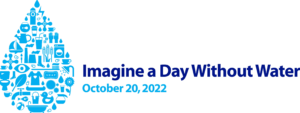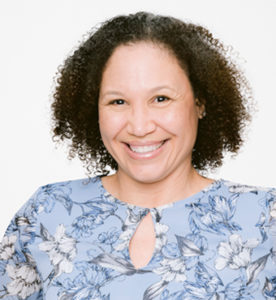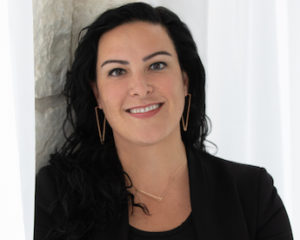Today, The Funders Network joins elected officials, water utilities, community leaders, educators, and businesses from across the country as part of the seventh annual Imagine a Day Without Water, a nationwide day of education and advocacy about the value of water. Led by the US Water Alliance’s Value of Water Campaign, over a thousand organizations across the country will join Imagine a Day Without Water on October 20, 2022, to raise awareness about the role of water infrastructure in our lives and the importance of investment. The focus of this year’s event is to invite people to take the #OneWaterPledge and learn more about where our water comes from and where our wastewater goes. (Learn more at imagineadaywithoutwater.org and follow the conversation on social media at #ValueWater.)
To honor this day, TFN asked three members of our Urban Water Funders Steering Committee to “imagine a day without water”…

Growing up in Chicago, it was hard for me to understand why anyone in the Windy City lacked access to safe, affordable tap water.
After all, we lived on the shores of Lake Michigan — the fifth largest lake on the planet.
Later, I became more aware of water crises in communities around the country. In the Great Lakes region, where I still live, tens of thousands of people cannot afford to pay their water bills. Some people deal with boil water orders because of contaminants in their drinking water.
This paradox of people who reside in a water-abundant region being unable to afford their water has serious ramifications. Scientists recently discovered that a lack of access to safe, affordable water during the COVID-19 pandemic increased the risk of health problems. One reason: Proper hand washing is critical to preventing the spread of COVID-19 and other viruses.
Ensuring that tap water is safe is only one part of the equation. We also must ensure that water is safe and available to all people, and affordable. In other words, we need water equity.
My employer, the Charles Stewart Mott Foundation, supports over 20 nongovernmental organizations working to address water equity issues in the Great Lakes region. Mott has a two-pronged goal for the work: ensure universal access to safe, affordable water while maintaining the financial health of water utilities.
Achieving water equity is a daunting challenge, but failure is not an option. Access to safe, affordable tap water is essential to public health and personal dignity. No one should be forced to cope with life’s daily challenges without safe water flowing from the tap at home. Click on these resources below to learn more about water affordability.
Water Affordability: A Growing Challenge;
Affordable water in the US: A burgeoning crisis;
Drowning In Expensive Water Bills? The Low-Income Household Water Assistance Program Can Help

Melanie Moore
Associate Program Officer, Environment | Charles Stewart Mott Foundation
TFN Urban Water Funders Steering Committee & 2022 PLACES Fellow
Hawaiʻi has always been an Island community defined by water.
Native Hawaiian ʻōlelo noʻeau (proverbs) often refer to the idea that water is life. It is said, ola i ka wai a ka ʻōpua — there is life in the water from the clouds.
From our rainforests and streams, fed by rainfall, to our aquifers, which support all who live here, what would these Islands be without fresh water?
At Hawaiʻi Community Foundation, we know that a day without water would mean our houseless communities go without reprieve from rising temperatures. It would mean our Hawaiian kūpuna (elders), who are statistically more likely to be afflicted with diabetes, could not access life-sustaining dialysis. It would mean our mothers who rely on the already scarce supply of formula could not feed their babies.
In Hawaiʻi, water is the essence, the foundation, of wealth. Before trade and tourism, we had water. Water is culture. Water is sustenance. As funders, and catalysts for change, water flows through every sector we touch.
Without it, we would become impoverished of our identity, our existence. There is no grant large enough to replace water, even for a day.
 Dana Okano
Dana Okano
Program Director | Hawaiʻi Community Foundation
TFN Urban Water Funders Steering Committee
Sadly, “a day without water” is becoming all too common for Texans.
For many Texans, “a day without water” is not an imagined experience—it’s just another day.
Some communities have never had running water. For the rest of us, experiencing days without water has become the rule rather than the exception. The one-two punch of climate-driven weather extremes and population growth have strained the state’s water supply and aging drinking and wastewater infrastructure.
Texas is more likely to issue a boil water notice than any other state, disproportionately affecting low-income, rural, and communities of color. Texans are also increasingly more likely to lose access to water following natural disasters. During Winter Storm Uri in 2021, 15 million Texans lost access to water. Just five years ago, Hurricane Harvey rendered drinking water unusable from Corpus Christi to Houston and Beaumont.
With increasing urgency, however, communities are responding by building resilience and protecting Texas’s water.
The Cynthia and George Mitchell Foundation envisions a One Water future as a pathway toward water security and sustainability. And our grantees have been doing prodigious work to advance this vision, from coordinating responses to disasters to facilitating One Water adoption across the state.
For example, the National Wildlife Federation (NWF), Texas Living Waters Project, and Bayou City Waterkeeper have pursued freshwater protection through forward-looking policy and planning efforts. Recently, NWF published a report highlighting water loss due to aging infrastructure to help pinpoint areas for investment in upgrades.
West Street Recovery, founded in response to Hurricane Harvey, is working with Houston communities to organize and advocate for equitable water assistance and justice.
Communities Unlimited has been working to help small, rural, and often low-income communities by providing deep technical assistance in accessing state and federal funds for water.
While it’s a reality that many face every day, we’re confident that through the great work of these and other organizations, together, we can protect Texas’s water and equitably meet these increasing demands for water across the state.
 Dr. Emily R. Warren Armitano
Dr. Emily R. Warren Armitano
Director, Land Conservation and Water Programs | The Cynthia and George Mitchell Foundation
TFN Urban Water Funders Steering Committee
About Urban Water Funders
Urban Water Funders, a TFN working group, is a network of place-based and national funders addressing urban water issues in communities across the country. Funders learn together, build relationships and catalyze action.
Currently, funders are prioritizing a variety of solutions to urban water issues — including One Water approaches, natural and green infrastructure and climate resilient strategies — with a strong focus on water equity and vulnerable communities.
If you would like to subscribe to TFN’s Urban Water Funders working group in order to receive newsletters and other resources, click here.
